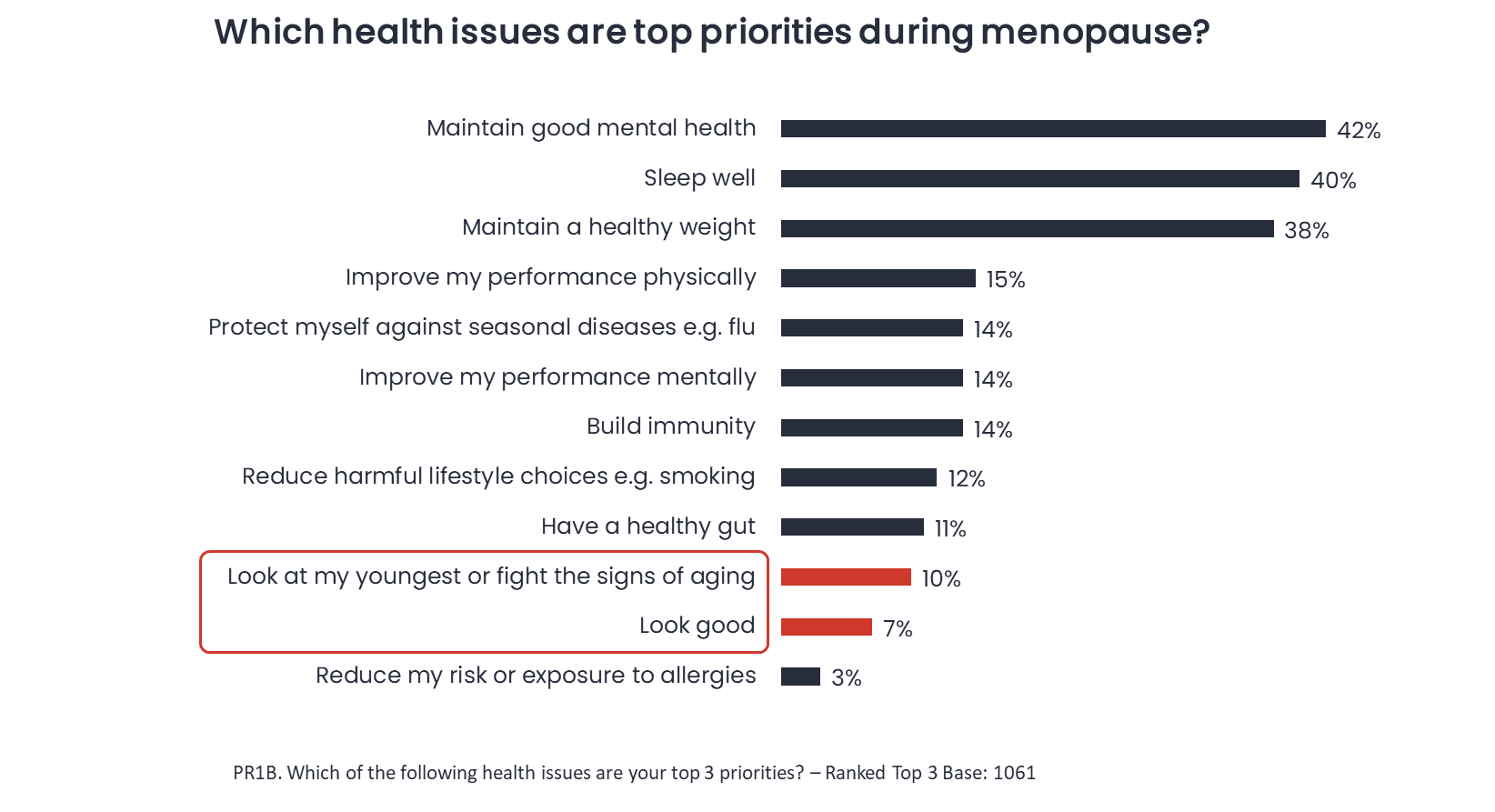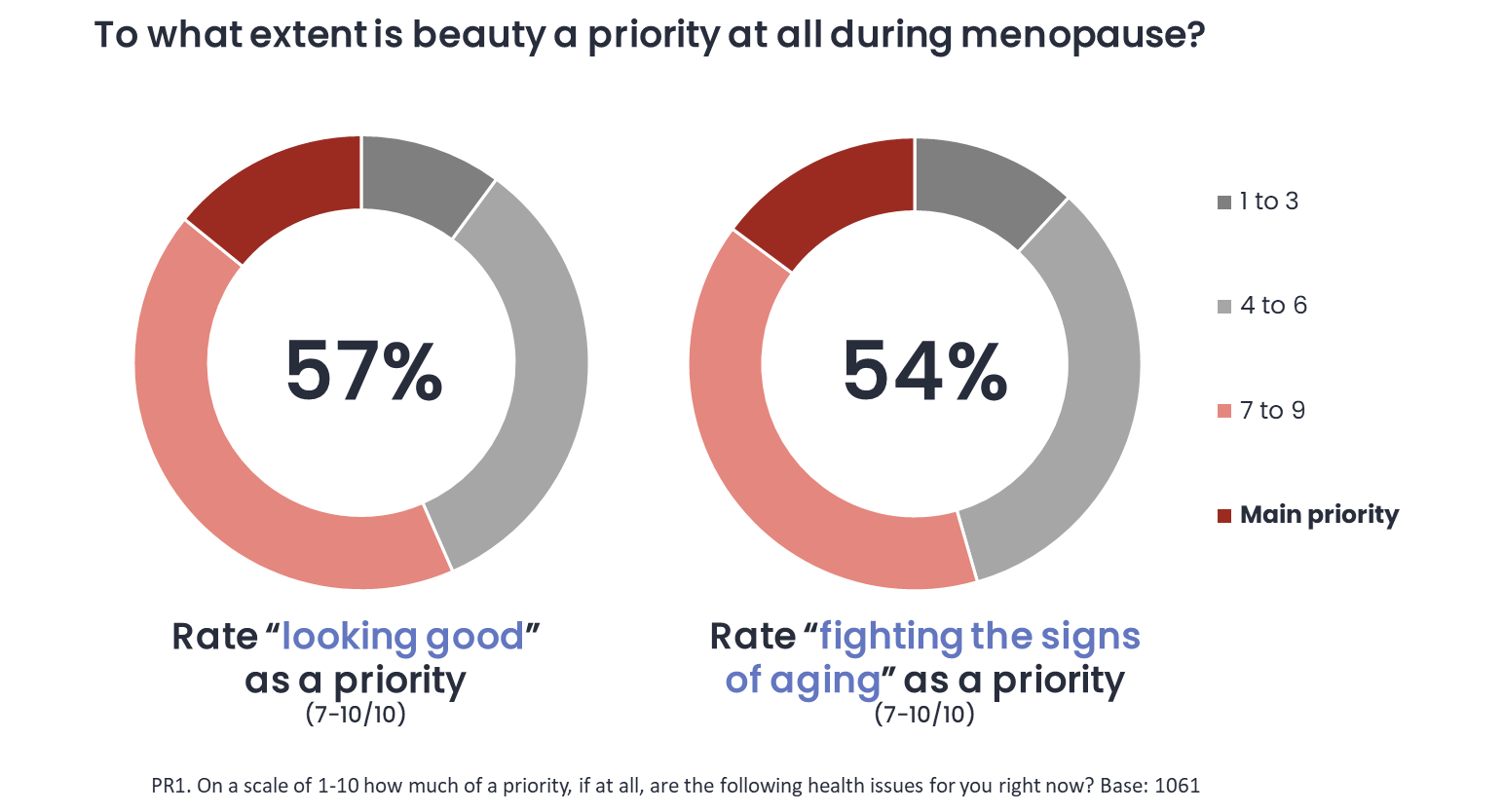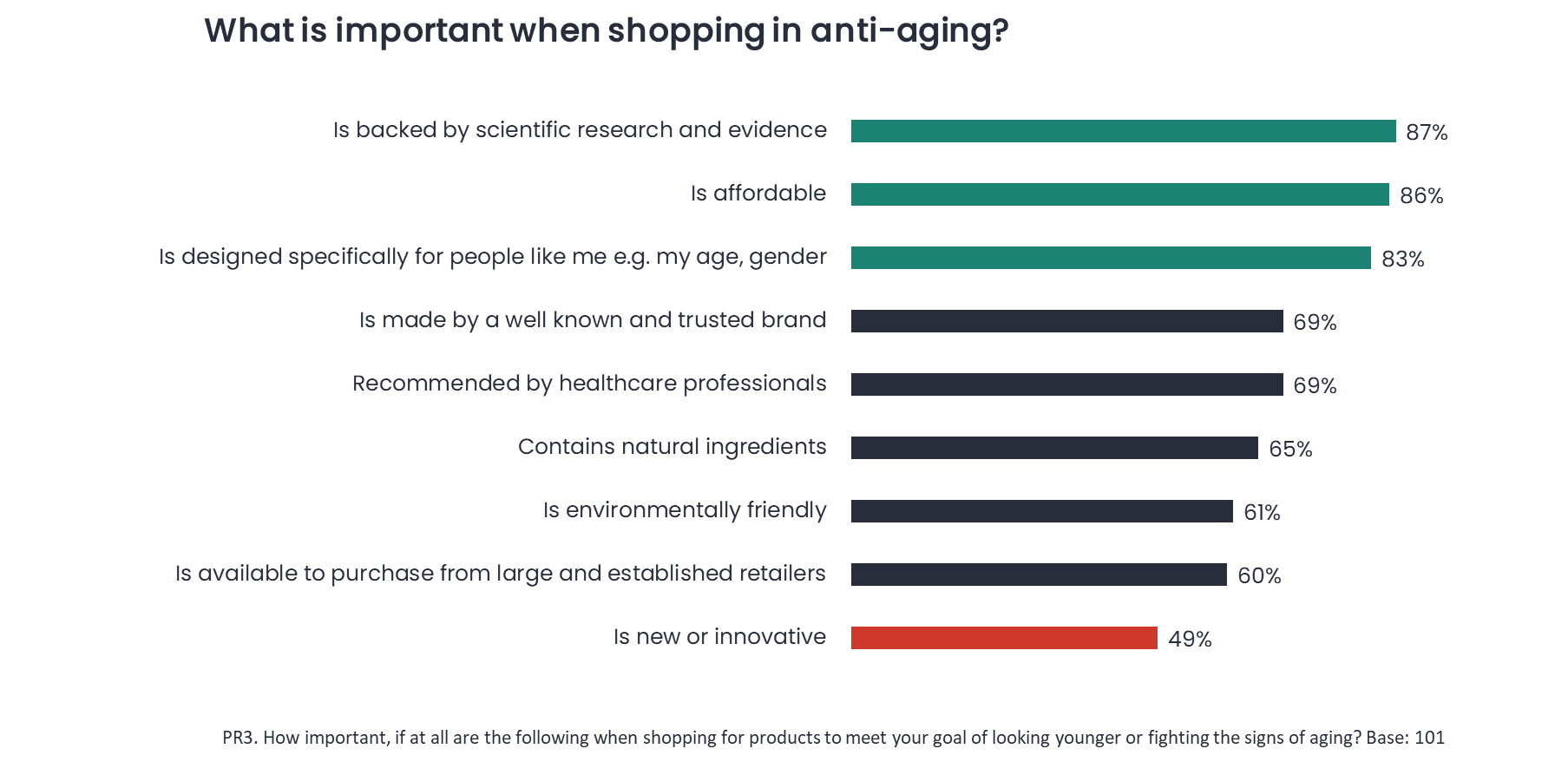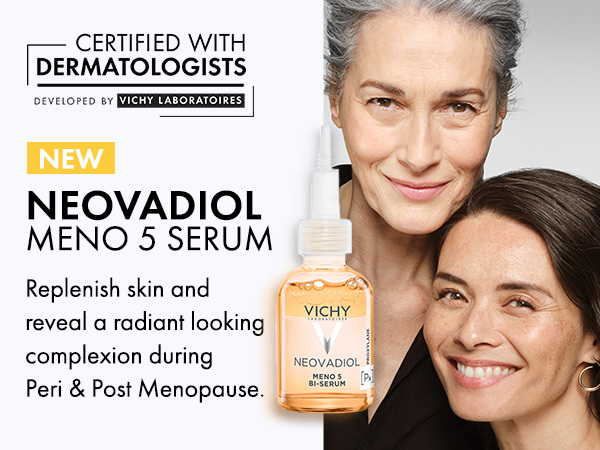Bryter Insight Director Isabel Wood explores the results of our menopause and wellness research and how it relates to predicted beauty trends.
Introduction
By 2025 there will be a projected 1.1 billion people living post-menopause worldwide. The world is waking up to the fact that this group are a distinct audience with their own needs, concerns, and purchase power. This is also a group experiencing the dramatic shift from being ignored and underrepresented to being seen and courted as a distinct market opportunity.
This is in part driven by celebrities and public figures who have their own voices and are outspoken about their experiences of aging. Investors are also playing a critical role, with venture funding for “femtech” surpassing $1 billion for the first time in 2021 and ever increasing.
At Bryter, we have seen pharmaceutical companies thinking about the health implications of menopause and post-menopause. How do the physical changes impact existing medications, and how can new medications provide symptom relief? Over the past few years new treatments and approaches have emerged for physical symptoms (hot flushes, osteoporosis), and mental health challenges (insomnia, depression, anxiety).
There is also significant opportunity for the health and beauty industry. Conservative estimates show the menopause market will be $16 billion by 2025 and $24.4 billion by 2030. As a result, a universe of products and associated trends are emerging to meet specific beauty needs that arise throughout menopause.
A survey by Bryter of 1061 women in the UK experiencing menopause related symptoms sheds a light on the aesthetic priorities of this audience and how they relate to 2024 predicted trends. Are they relevant for the audience themselves? What will work for this audience, and what wont?
How much of a priority is beauty during menopause anyway?
When Bryter explored priorities in menopause, we see unsurprisingly that beauty and anti-aging are much less likely to be a top priority than the symptoms of menopause itself, and overall health:

In the grand scheme of things, image is not necessarily the first thing on the mind. However, when we look closer we see a more complex picture. We can’t deny that looking good and anti-aging are important to a significant proportion:

On the grand scale of menopause related concerns like insomnia and mood swings, beauty may take a back seat, but self-image and wider self-esteem often take a significant hit whilst navigating new and changing bodies. The focus for anyone communicating with this audience will increasingly be on re-framing what self-love and self-acceptance means as we age.
What do trend forecasters predict for 2024?
Active aging is everywhere in trend predictions. This moves the discourse away from ‘anti-aging’, and towards more positive and holistic messaging. The aim in the past had been to turn back the clock, and reverse signs of aging skin. Now the focus is on using targeted preventative approaches in earlier years (skin barrier and sunscreen continue to trend, as they have done in recent years), morphing into celebration once skin is mature.
Hormonal skincare: the natural successor to increasingly tailored skincare is skincare designed to work in line with hormonal changes. In menopause, this means understanding how hormonal shifts cause skin cell turnover to rapidly decline and can lead to breakouts, dryness, itching, and collagen loss.
In particular, this means focusing on ingredients which support skin as it goes through these changes, like ecotin, peptides, and phytoestrogens.
Vitamins and supplements continue to be a core part of menopause care and are increasingly directed toward beauty goals, with focuses on maintaining hair quality, hydrating dry skin, boosting collagen production, and supporting sleep. The most cited are black cohosh, red clover, soy isoflavones, probiotics and evening primrose oil. Tying in with the hormonal skincare trend, supplements are also increasingly focused on supporting hormonal regulation.
How do these trends translate into reality?
We asked our audience what is important to them when shopping for products to achieve their aesthetic goals. Relatively speaking, they are not seeking products that are new and innovative (under half of those surveyed). Outside of value, this audience is focused instead on products that are credible (backed by research and evidence) and designed specifically for them.

Implications for the developing category
When it comes to purchasing decisions, we know that customers want to buy products that they are tailored to their specific situation. We see this across categories, but it is most true when looking at products that are supposed be efficacious. People want to be reassured that the product will work for them, that it understands them, and that they will be safe.
Personalised, hormonal skincare is the logical extension to this. Those going through menopause will want to know that any product they purchase are going to be suitable for their specific needs (83% of respondents).
Within this trend is the need to stay away from things that may seem new or unproven to the majority audience. We predict that brands will find success combining a new focus on the menopause with trusted ingredients elsewhere.
Additional Information
For further information about our menopause research, or anything else mentioned in this article. Please get in touch with the author, Isabel Wood (isabel.wood@bryter-global.com), we’d love to hear from you.
Our work provides strategic, evidence-based guidance from pre-clinical and NPD through to launch, and to in-life assessments. Contact us today to learn more about how we can support your health and wellness product strategy.




